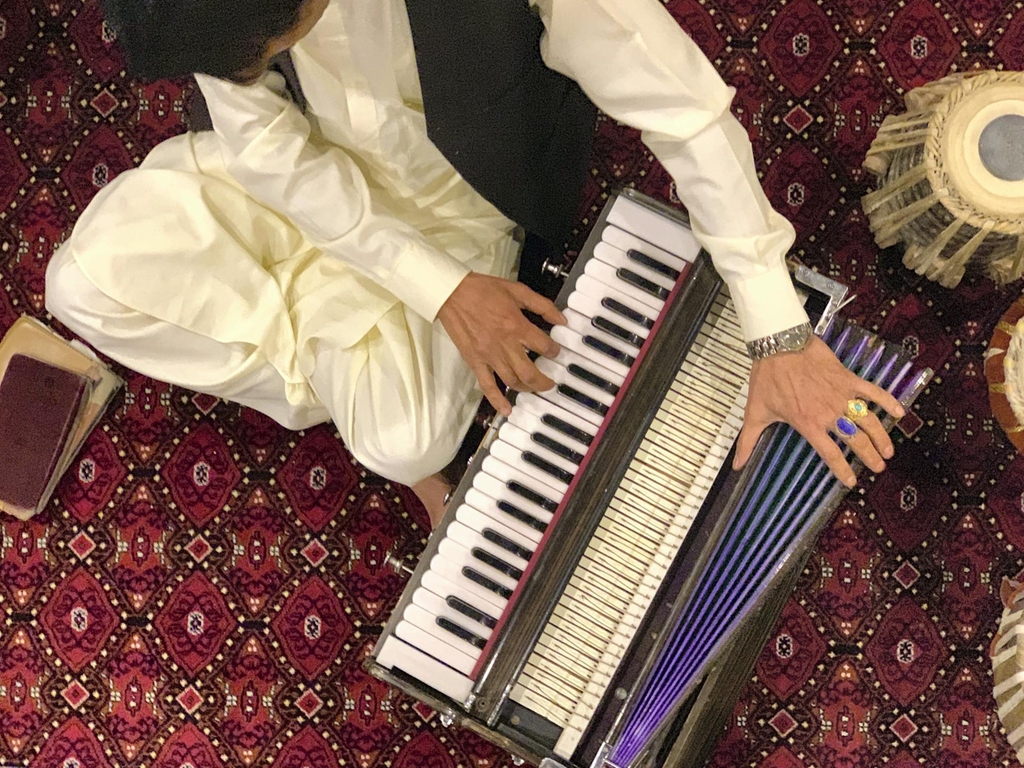Afghan musician Shafiq Baksh closes his eyes in reverence as the call to prayer wafts from the loudspeaker of a nearby mosque, marking the end of the day-long Ramadan fast.
“The azaan is a kind of music that brings us close to God,” he says. “”But music in itself is a path to God.”
Baksh, 50, joins an assortment of friends, some of whom are also musicians and others who simply admire his work, in prayer and then iftar at restaurant run by one of them. They gather around a large table weighed down with a variety of traditional dishes served in “Afghan portions”, a term to denote generous quantities. Borani banjan, a fried eggplant delicacy served with yogurt, and okra cooked with tomatoes are served along with Qabili pulao, an staple dish of meat and rice, are all set out in blue handmade clay dishes from Istalif, a village outside Kabul city.
The sound of conversation and soft laughter fills the room, as Urdu songs play in the background on a small speaker. Baksh does not approve of such music, produced on western instruments such as drums and piano, and using electronic software. “There is no rhythm or structure to it, there is no poetry in the lyrics and no sweetness in the words,” he says, voicing disdain for not just western music but also new music in Afghanistan.
Baksh, who plays the harmonium and sings, comes from seven generations of masters of traditional music and says crafting songs is a labour of love that requires time and effort. “The music we create needs patience and passion. Our music is structured and follows the symmetries of art. We spend hours tuning our instruments to achieve kaifiyat– a degree of excellence,” he said. “What they [new artists] create is chaotic; it is sin to us.”
However, he is fully aware that Afghanistan and its people are changing. Over the past few decades, as Afghanistan moved from one conflict to another with only brief periods of respite, the nation lost a lot of its traditional culture. The massive displacement due to the wars also affected its music as people who migrated returned with different tastes and new musicians catered to them. “The audience for our music has gone down by at least 50 per cent, the other half have lost their path to the newer, western music,” he laments.
The violence has also reduced the prospects of employment for musicians like Baksh. “We are hired in times of joy and celebration; when people die, they look for those who can wash the bodies and conduct prayers,” he says. “We are made for moments of happiness.”
Read full story on The National UAE
